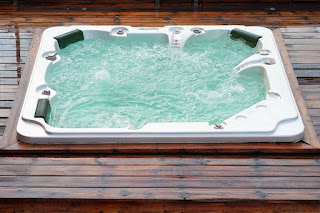Hot tub therapy, also known as hydrotherapy, can potentially help in managing blood pressure levels, but its effectiveness may vary depending on individual circumstances. Here's how hot tub therapy might influence your blood pressure and help you feel better on a daily basis:
- Soaking in a hot tub can promote relaxation and stress reduction. Stress is a known contributor to high blood pressure, so reducing stress levels through relaxation techniques like hot tub therapy may help lower blood pressure in some individuals.
- The warm water and hydrostatic pressure of a hot tub can improve circulation by dilating blood vessels and promoting blood flow. Better circulation can help reduce the workload on the heart and potentially lower blood pressure.
- While hot tub therapy may be beneficial for some individuals, it's important to exercise caution, especially for those suffering from certain medical conditions. People with uncontrolled hypertension or heart disease should consult their healthcare provider before using a hot tub, as the heat and hydrostatic pressure could potentially exacerbate their condition.
- It's
essential to stay hydrated while using a hot tub to prevent dehydration,
which can affect blood pressure regulation. Drinking water before and
after hot tub use can help maintain hydration levels and support overall
cardiovascular health. Looking for some of the best in hot tub spa Denver area shops can be found at Wind River Spas https://windriverspas.com/.

